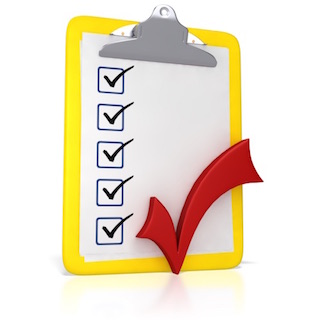 Recently a friend asked me if I had a list of Best Practices for radio advertising copywriters, for him to share with a client.
Recently a friend asked me if I had a list of Best Practices for radio advertising copywriters, for him to share with a client.
I didn’t have a formal list, so I told him I’d write whatever came to my mind, in the order it came to me.
No editing. No explaining. No justifying.
Just an incomplete, bare bones list of many of the elements required of a successful radio commercial.
The Quick, Incomplete “Best Practices” for Radio Advertising Copywriters
* The goal of a radio commercial isn’t to entertain; it’s to sell.
* The opening line of a radio spot is the commercial for the commercial.
It’s your one chance to attract the attention of your target audience.
* Single Core Message
Your Radio Spot’s Call to Action
* Don’t give your Call to Action until you’ve made the listener really want what you’re offering.
* If your Call to Action is to call a phone number, giving the number more than twice is an indication that you haven’t given listeners a strong enough reason to call.
* If your Call to Action is to call a phone number, it goes at or near the end of the spot.
* Who told you you never should begin a commercial with a question?
* Single Call to Action When you give people a choice of actions (e.g., “Call us or go to our website,”) you generate fewer responses than you would with a single, strongest Call to Action.
Why?
Choice Paralyzes Response.
Communicating to Your Targeted Radio Listeners
* Who told you you never should begin a commercial with a question?
* Speak the language your target audience speaks.
* Average American conversational speech: 3 words per second (90 words per :30, 180 words per :60).
3 words per second isn’t your goal; it’s a rule-of-thumb to determine the maximum number of words you should use in a typical commercial.
A well-written commercial usually requires fewer than 90 or 180 words. What to Say and How To Say It in Your
* Squeezing in more words by digitally speeding up the commercial is a good way to let people know the commercial was created by an amateur.
* Don’t talk about yourself (i.e., you, the advertiser). Nobody cares.
* When you speak in clichés, you give people permission not to listen.
* When you have someone pretend to be a customer, the audience can hear it, and they realize you’re lying to them.
* Present the information from the listener’s point of view.
* Radio Advertising Solves Problems. Talk to listeners about the problem you’re going to solve for them.
* The pictures your commercial paints in the listeners’ minds are what they’ll remember.
* “Visit Us Online” is a stupid thing to say.
If your Call to Action is to get the listener to go to your website, it should be either to get something or to do something.
No one wants to visit you online.
* Use music in a commercial only if it enhances the emotional impact of the spot.
* You don’t get a radio commercial by holding a brochure up to a microphone.
* Give people a reason to buy.
* Anticipate objections and overcome them in your commercial.
* Other than food, water and shelter, your listeners don’t have “needs.”

